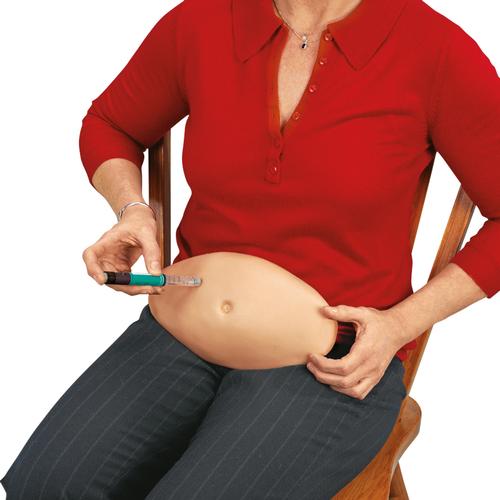Let’s talk insulin.
Mention the “I word” to some reduced carbohydrate dieter, or perhaps a clean eater, and you’ll virtually discover their whereabouts turn white because the blood drains from other face in abject horror.
For many years, insulin is the big crook from the nutrition world.
They talk about insulin as “the storage hormone” and believe anywhere of insulin by the body processes will immediately allow you to lay down new fat cells, put on weight, and lose any amount of leanness and definition.
Fortunately, it’s not quite the situation.
In fact, while simplifying things with regards to nutrition and training are frequently beneficial, this is the gross over-simplification of the role of insulin inside you, and the simple truth is entirely different.
Far from being the dietary devil, insulin is really not forget of in any respect.
What Insulin Does
Describes with the insulin worrier’s claim (that insulin is really a storage hormone) is true – one of insulin’s main roles would be to shuttle carbohydrate that you just eat round the body, and deposit it where it’s needed.
That does not mean that most the carbs you take in are converted into fat though.
You store glycogen (carbohydrate) within your liver, the muscles cells and your fat cells, and will also only get shoved into those pesky adipose sites (fat tissue) when the muscles and liver are full.
Additionally, unless you are in a calorie surplus, you simply cannot store body fat.
Consider it by doing this –
Insulin is like the employees in a warehouse.
Calories are the boxes and crates.
You might fill that warehouse fit to burst with workers (insulin) but if there isn’t any boxes (calories) to stack, those shelves won’t get filled.
And if you’re burning 3,000 calories every day, and eating 2,500 calories (as well as 2,999) your system can’t store fat. No matter whether dozens of calories come from carbs or sugar, you do not store them, as your body demands them for fuel.
Granted, this would not be our planet’s healthiest diet, speculate far as science is worried, it depends on calories in versus calories out, NOT insulin.
It is not just Carbs
People fret over carbs keeping the biggest affect levels of insulin, and how carbohydrate (particularly with the simple/ high-sugar/ high-GI variety) spikes levels of insulin, but a good amount of other foods raise insulin too.
Pure whey protein, as an illustration, is very insulogenic, and will spark a spike, particularly if consumed post workout.

Dairy products too have a relatively large effect due to natural sugars they contain, and also fats can raise levels of insulin.
Additionally, the insulin effect is drastically lowered to eat a combined meal – i.e. one that contains carbs plus protein and/ or fat.
This slows the digestion as well as the absorption of the carbs, leading to a significantly lower insulin response. Add fibre into the mix too, along with the raise in insulin is minimal, so even when we had arrived focused on it before, the perfect solution is straightforward – eat balanced, nutrient-dense meals, and also you don’t need to worry.
Insulin Builds Muscle
Rediscovering the reassurance of thinking about insulin as being a storage hormone, as well as the notion which it delivers “stuff” to cells:
Fancy choosing a guess at what else it delivers, beside carbohydrate?
It delivers nutrients in your muscle cells.
Therefore, in case you are forever attempting to keep insulin levels low for fear of extra weight, it’s highly unlikely you’ll get buff optimally. It’s for this reason that I’d never put clients seeking to get buff making lean gains on a low-carb diet.
No Insulin Can Still Equal Fat Storage
Unlike dozens of low-carb diet practitioners again, it’s possible to store fat when levels of insulin are low.
Dietary fat when consumed inside a caloric surplus is definitely transformed into unwanted fat tissue far more readily than carbohydrates are, showing that once again, fat gain or weight loss depends upon calories in versus calories out, not insulin levels.
Why low-Carb (and Low-Insulin) Diets “Work”
Many folk points towards scientific and anecdotal proof low-carb diets being reasoning in order to keep insulin levels low.
I won’t argue – a low-carb diet, where insulin release is kept to a minimum can easily work, however this has almost no to do with the hormone itself.
Whenever you cut carbs, you mostly cut calories, putting you right into a deficit.
Additionally, the person will eat more protein and more vegetables when going low-carb, so they really feel far fuller and eat less. Plus, protein and fibre both have a higher thermic effect, meaning they actually use up more calories throughout the digestion process.
Important thing: Insulin – Not So Bad After All
You don’t need to be worried about insulin if you –
Train hard and regularly
Have a balanced macronutrient split (i.e. ample protein and fat, and carbs to fit activity levels and personal preference.)
Are relatively lean.
Eat mostly nutrient-dense foods.
Don’t have any problems with diabetes.
You can still store fat with low insulin levels, and you may get rid of fat and build muscle when insulin occurs.
Taking a look at insulin in isolation as either “good” or “bad” really is a prime instance of missing the forest to the tress, so calm down, and let insulin do its thing when you pinpoint the real picture.
To get more information about Buy Insulin online please visit resource: this.
